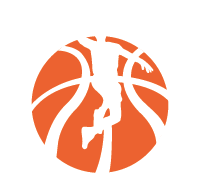Forget shooting a buzzer-beater 3-point shot. According to David Jones, or ‘The Shot Doctor’ as he’s better known in basketball circles around the world, there are other, less physical skills players can demonstrate at basketball tryouts to help them make the cut.
“I want you to make the team,” Jones told a group of middle and high school ballers, at his recent Advanced Skills Clinic. Jones held the clinic to help players prepare for their upcoming school basketball seasons. “And if you make the team, I want you to make the ‘A’ team. If you make the ‘A’ team you should aim to start. If you’re already being positioned as a starter, I want you to be the one to break the school record,” continued Jones. “These should be your goals based on where you are, today, as you go in front of your school coaches. And while skill can help you achieve these goals, there are other things, strengths that have nothing to do with handling a basketball, that if demonstrated, will better your chances at success on the court.”

Throughout the two-and-a-half hour long clinic, Jones preached often about the mental and character-driven skills he looks for in a player.
Jones told players one of the first things they can do to impress a coach at any basketball tryout is to arrive early to practice. Not on-time. Not ten seconds late.
Early.
Thirty minutes to an hour early.
Jones continued, “And when you arrive early, don’t talk to your buddy. Don’t sit against the wall and look at your phone. Instead, be the player who came prepared to work hard. Demonstrate your desire to play ball by using the time before every practice, showcase, or tryout to stretch and warm-up with the basketball.”
Jones told players that it might feel uncomfortable to be the one player who stands up or heads onto the court first to shoot around. “I guarantee, that other players will follow. And that, designates you as a leader,” the former professional player said.
Other tips Jones had for players eager to secure a spot:
- Be the first in line during drills
- Communicate (talk) during drills, scrimmages
- Volunteer
- Look to lead
- Go hard on defense
- Recover quickly from a missed shot or mistake
These are character-driven skills Jones looked to perfect in the over 13 years he played professional ball in Germany and throughout Europe. Jones remembers times that he’d be off on his footwork or fail to make a 3-point shot, and, instead of dwelling on his mistake, Jones learned to train himself to recover and remedy. “Mental toughness and the ability to shake off mistakes is huge,” said Jones.
This is not to say that skill, talent, and overall motivation aren’t also important to coaches.
“I’m constantly looking for those players who are fundamentally sound,” Jones reminded players at the clinic.
Also, Jones looks for hustle and focus. At his pre-season clinic Jones ran players through one drill, for example, that appeared to be easy: Make shots from an outside corner. Sounds simple. However, Jones added a twist to the drill. He required players to compete against a clock and one-another while keeping track of the number of made shots. This twist forced players to demonstrate hustle and focus. Who stood out? Players who didn’t tire easily, those who remained focused, and, ballers who could still make their shots by the drill’s end.

Another trait in a stand-out player, according to Jones, is a player’s ability to go all out. To give 150-percent. To go above and beyond for the team. “Some kids today call that being a ‘try-hard’ apparently,” said Jones. “Well guess what? I like try-hards and I’m going to play the so-called ‘try-hard’.”
But what, if after doing all of these things to stand out and impress a coach, a player still feels he could get cut?
Then what?
That’s when Jones suggests talking to the coach. And the conversation may even go something like this:
Hey coach. Do you have a minute? I’m willing to do whatever it takes for the team. Where can I improve in my game to be better?
Jones says to say something like this in a genuine and confident manner to a coach tells him the player cares.
And Jones said he understands that it is not always easy to approach a coach, especially when a player is new or doesn’t yet have an established rapport with the team. “Don’t be afraid to reach out to the coach but do so after practice when he is in his office or clearly finished on the court.”
When it is all said and done, whether a player makes the team or not, or lands that starting position or finds she has to continue to prove herself, according to Jones, never give up easily.
Because ~ on and off the basketball court, just as in life, there will be many ‘no’s’.
But it only takes one ‘yes’.

Erin Kirwan is former broadcast journalist and owner of Savvy Media PR. She shares stories, tips, and more for Shooting For Success.


Recent Comments